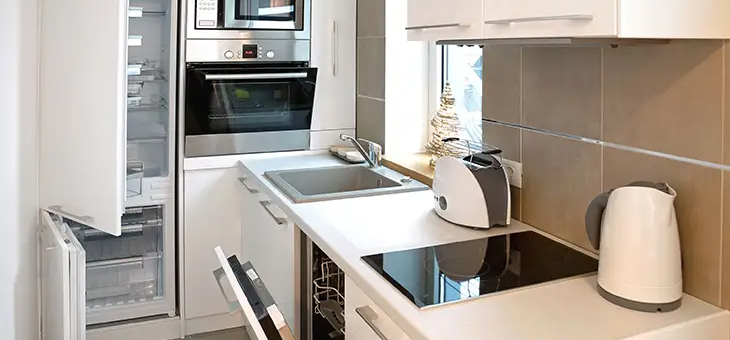If you were to ask me about the one thing I missed most about the office while I was working from home during lockdowns, I would have to say it was using someone else’s electricity.
It appears I am not alone, either.
A study released on Thursday shows that the pandemic has dramatically changed the way Australians use power. Some of these changes are likely to be temporary and some more permanent, but the surge in energy use has also changed attitudes to the way we think about energy use.
Read: Tips to help you fight back against soaring energy bills
According to the Energy Consumer Behaviour Survey, commissioned by Energy Consumers Australia with input from Monash University’s Digital Energy Futures Project, a renewed interest in home cooking during the pandemic saw many Australian purchasing large appliances.
The study found that 30 per cent of households reported having bought a large appliance during the past year and a third of respondents now own more than two fridges or freezers.
Energy Consumers Australia chief executive Lynne Gallagher also said that the pandemic had, predictably, changed the times of the day when people were using energy, but that 41 per cent of respondents said their household had become more interested in reducing energy use since the pandemic.
Read: Wondering if your energy company takes climate change seriously?
The survey also explored how willing consumers would be to reduce or shift their energy use at times when demand spiked.
Asked what it would take to get them to reduce energy use ‘as much as possible’ during such an event, 30 per cent said they would do so only if there was a financial incentive, but 44 per cent said they would, even without a financial incentive. Only 8 per cent said they would be unwilling to take action.
“This suggests that there is a latent willingness in the majority of households to moderate their energy use during times of system stress,” Ms Gallagher said.
While Australians reported that they would like to use less energy, their confidence in achieving this was mixed.
According to the survey, 24 per cent of respondents thought their house would use more cooling over the next five to 10 years and 17 per cent thought their house would use more heating over that time.
Also, 29 per cent of respondents thought that it was likely or certain that they would use air conditioning to keep a pet comfortable or healthy over the next five to 10 years.
Read: The great energy bill pricing gap and why you’re missing out
“We can see just how much COVID has changed our energy behaviour as a nation, from the food we eat and how we store it to our use of heating and cooling and the appliances we are buying and intending to buy,” Ms Gallagher said.
The study also found that 59 per cent of respondents said they were cooking at home more since the pandemic started and 40 per cent said that their houses were using more heating and cooling.
The pandemic has also accelerated some energy use differences that were already underway, including a proliferation of devices and appliances.
The study reported that 52 per cent of respondents said their household had more digital devices running than five to 10 years ago and 42 per cent said their kitchen had a wider variety of appliances than it did over the same time period.
Earlier this month, YourLifeChoices covered the Rewiring Australia report, which showed that electrifying our households could save an average of $5000 per year on electricity bills and vehicle running costs.
However, this recent report showed the challenge in encouraging people to transition gas devices to electric, with just 9 per cent of household consumers seriously considering running their home on electricity only.
Conversely, 77 per cent said that they had either not thought about it or had thought about it and decided not to pursue it.
How has the pandemic changed the energy usage in your household? Would you like to reduce the energy usage in your house? What steps are you taking to achieve this? Why not share your thoughts in the comments section below?
If you enjoy our content, don’t keep it to yourself. Share our free eNews with your friends and encourage them to sign up.

